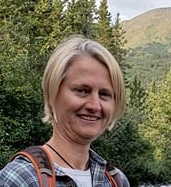My first introduction to Warsaw, in February of 1992, revolved around the train station and my plan to get to Russia via Lithuania and see what was happening post-USSR. This was indeed an adventure, but it did not involve much of what you might call sightseeing. I was jetlagged and frustrated in a wintry grey city and I can’t say that I subsequently had any strong desire to return.
Fast forward to spring of 2014. For several years we had been discussing the possibility of expanding the SRAS geographic footprint. The questions, as always, were where, when, and with which partners.
Our model for the past decade has been to pair location and subject matter. We noted that many of our Russia-bound students were majoring in regional studies, which included Central Europe and that several had spent some time traveling, studying, or interning there. At the same time we became more and more convinced that demand for studies related to global security and cybersecurity in particular would increase significantly as both governments and businesses come to see these as essential in a globalizing, digitizing world.
After much deliberate analysis, Poland was at the top of our list. As a location, it makes sense – it is Central Europe’s largest country by both size and economy. With a fascinating and tragic history driven by its unique geostrategic position, Poland is also one of Central Europe’s most active countries in terms of foreign policy – actively building alliances with other countries and playing a major role in the current events in Ukraine, with which Poland has strong historical ties. Poland is also a leader in innovative security measures – particularly as concerns energy and cybersecurity.
Our route to establishing a program in Poland wasn’t immediate, though. Starting a new program is always a slow and careful process of seeking out and vetting partners on the
Again my visit was very short – part of a fast-paced, exhausting, but also exciting itinerary which the efficient and professional staff at Civitas University assisted me in developing. In that short time (about 30 hours total) we managed to develop the beginnings of two new programs focused on Cybersecurity (with an added dimension of New Media) and Jewish Studies. Poland has a rich and fascinating Jewish history, more of which can be read about on our site here. I was also lucky enough to have a private tour of the POLIN Museum of the History of Polish Jews, and managed a quick visit to the Chopin museum which, with my own background in music, was of particular interest to me. Most importantly, I was able to meet a lot of interesting, fun people from a range of backgrounds and professional experiences who will act as advisors for our students.
Program development proceeded efficiently and within two months we were set to offer four new programs in partnership with Civitas University – two semester and two summer programs.
Our new programs at Civitas University include:
- Security Studies (including Cybersecurity). Poland is uniquely positioned to address the subject of security both from a historical perspective and with an eye toward current events. Students of international relations, political science, history, and computer science, in addition to enhancing their undergraduate credentials, will discover new career tracks to consider. Summer and semester programs.
- New Media. Central and Eastern Europe is a fascinating case study in New Media in terms of its role in shaping democracy, elections, and various movements. This track is aimed at students of sociology and journalism. Semester program.
- Jewish Studies. With the opening of the POLIN Museum of the History of Polish Jews, which will be actively involved with our programs in this area, Warsaw is a logical place to base your studies of Jewish history and culture. Many other sites important in this history are easily reached either as organized tours, or personal exploration. Summer and semester programs.
SRAS would be responsible for recruiting American students to join these exciting programs, and Civitas University would bolster the ranks and create an even more interesting experience for our students by adding students from Europe and other locations to the enrolment. I decided it was time to do two things: learn Polish and spend more time in Warsaw.

The Polish Language. It is intimidating. I say that as someone who loves languages and the process of language learning. While Polish language study is included in our semester programs and the summer internship extension, all other coursework is in English. Many of the Polish people you encounter in Warsaw speak excellent English as well, so navigating the city without the language is certainly possible. For me it is a personal challenge and so I have been studying Polish by Skype via a platform called italki.com that specializes in arranging language exchanges and private lessons (www.italki.com). The Poles know their language is difficult and so any attempt to learn it is really appreciated. If you know Russian, that helps. Initially it will frustrate you as you will think you should understand more than you do. After a bit of study, however, you will start to see more and more parallels.
 |
|
| Frederic Chopin in Warsaw’s Royal Baths Park aka Łazienki Park. Lots of concerts are held here in the summer. |
Warsaw (the City and People). Early in February, 2015, I made my third trip to Warsaw. This time I stayed nearly a week and a major objective was to get a better sense of the city, which for me is best done by walking around.
Warsaw is by no means a city that jumps out at you as aesthetically beautiful. That said, I think something would feel “wrong” if it were a picture perfect city. It would simply not reflect the history, which when it comes to Warsaw, included complete destruction of the city. There are certainly some very pleasant areas such as the Old Town and the many parks. But overall it is a challenging city to photograph and I understand now why I didn’t see much in the way of souvenir postcards.
Perhaps the most positive aspect of this lack of architectural beauty is that you realize even more quickly that this country is all about the people. Of course, the same can be claimed about any place and what is study abroad if it is not about getting to know new people. But I would also point out that history and culture do affect a people and while I have not met enough Polish people to make a scientific conclusion, there seems to be a certain Polish sense of humor and irony that I appreciate. Perhaps it is something born of a complicated and almost constantly tragic history. Maybe it is the difficult language they have to master. Whatever it is, it more than makes up for a lack of impressive architecture. And really, what is it that makes you return to a place? The people… and often the food.
 |
|
| A healthy breakfast plate at a local café. |
Food. This is a priority for me when I travel. I can’t say that I had very high expectations for Warsaw in the food category, but this was mainly because despite my German/Scandinavian roots, I have never been a big fan of the heavy diet of that region. Typical Polish foods, what you might find in a cafeteria catering to students, is indeed heavy: meat, potatoes, pierogis. Filling? Yes. Tasty? Generally. Can I eat it every day? No. However, I was pleasantly surprised to find that there is a great variety of restaurants in Warsaw serving either a more modern (as in healtheir or more innovative) version of Polish cuisine, or a more international menu. Even high-end restaurants are considerably less expensive than their counterparts in other European cities or the US. There is fairly extensive use of mushrooms, which always scores points with me. And several foods that I had in Warsaw restaurants I am already trying to recreate at home. In short, if you are a food person, you will not be disappointed in Warsaw.
Civitas University. As I’ve said, the main reason to travel to a country is to meet the people. Likewise, the reason to partner with any organization is the people. Civitas University is a small non-public university, established in 1997 on the initiative of a handful of members of the Polish Academy of Sciences. As such it is a very intimate setting and very deliberate in its approach to education. The academic focus and reputation is heavily based on sociology and political studies. This is a place where students have access to some of the best professors and lecturers in Warsaw and from abroad. Many lecturers and professors are members of the EU Parliament, former Ambassadors and Charge d’Affairs, or otherwise hold or held high positions in government office and/or academia.
Students at Civitas University are very well supported in their studies and research. We have designed our programs such that in addition to regular classroom lectures, there is advisor support designed to provide a more personal experience through regular but less formal meetings to discuss coursework, research, interesting things to do while in Poland, career perspectives, and more.
If you are advising students who are seeking to study security issues or Jewish history, we can strongly and confidently recommend these new programs at Civitas University. We will be following the initial courses both with our contacts and with all students enrolled after they officially begin this summer and fall. Given what we know about Poland, Civitas University, as well as the people, food, and general atmosphere of this location, we have no doubt that students will leave with valuable new knowledge and invaluable experience meeting interesting people and experiencing Central Europe.
SRAS Programs at Civitas University
https://www.youtube.com/watch?v=wHRn3iOd9EQ&feature=youtu.be&list=PL24R9KB16Y4l7dSMtOfUpT_ahXJdV_IXz


